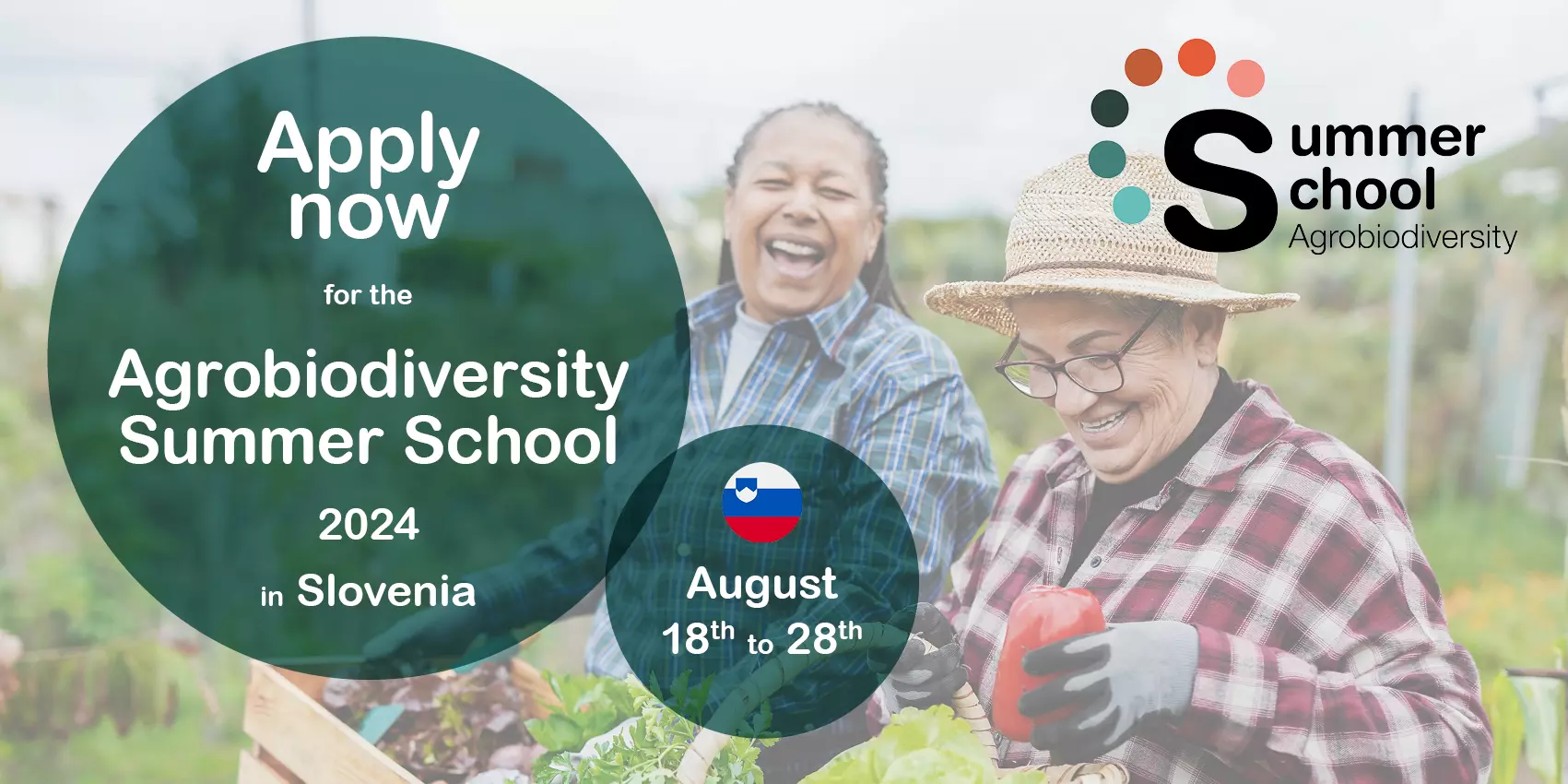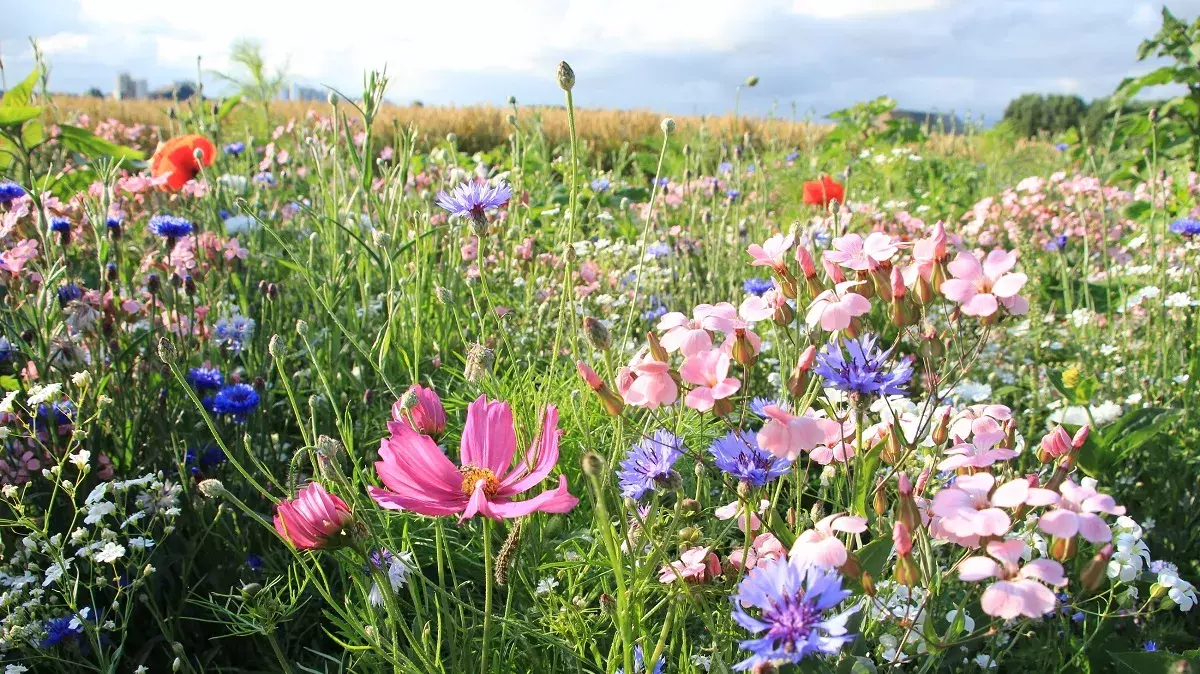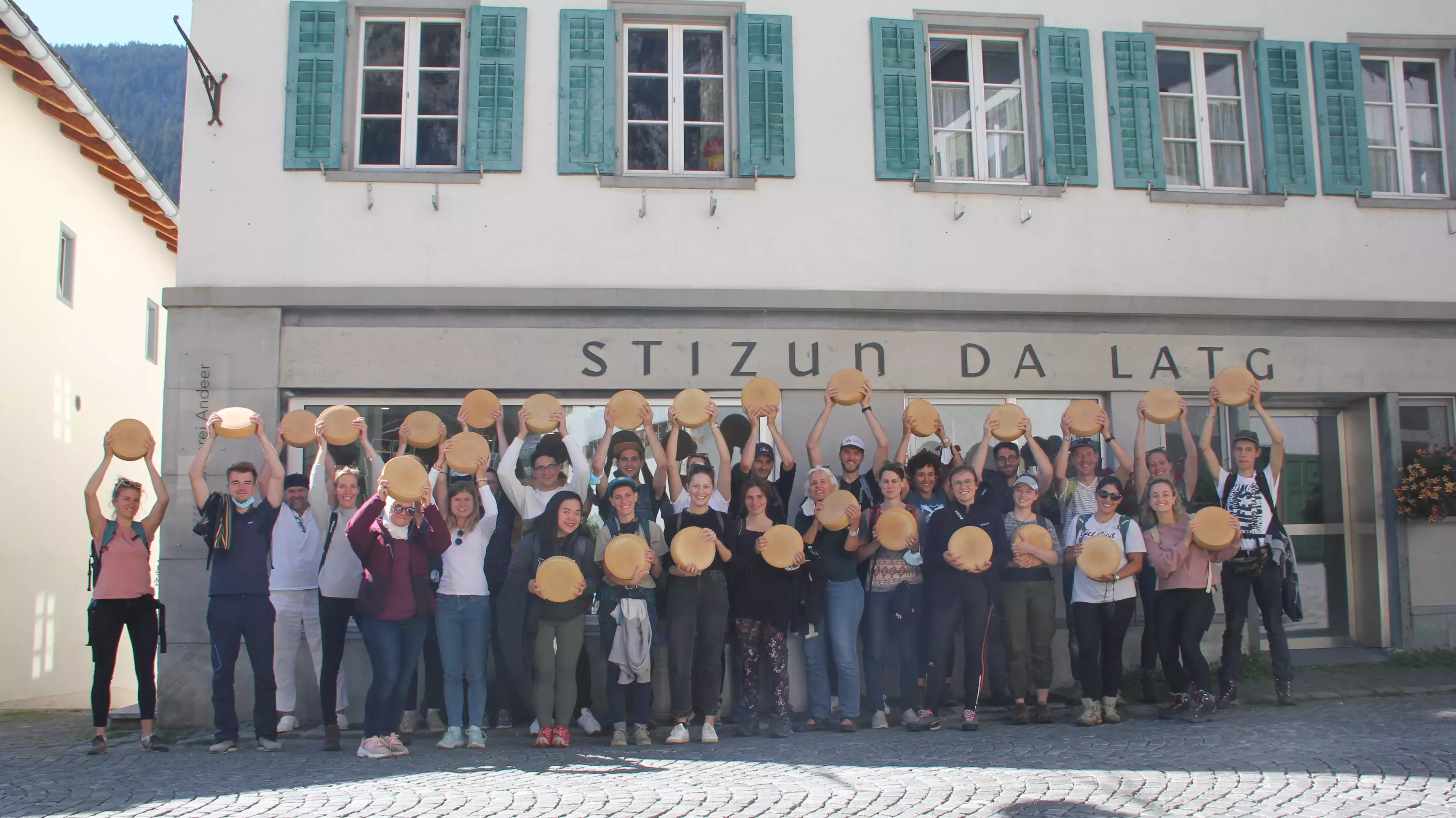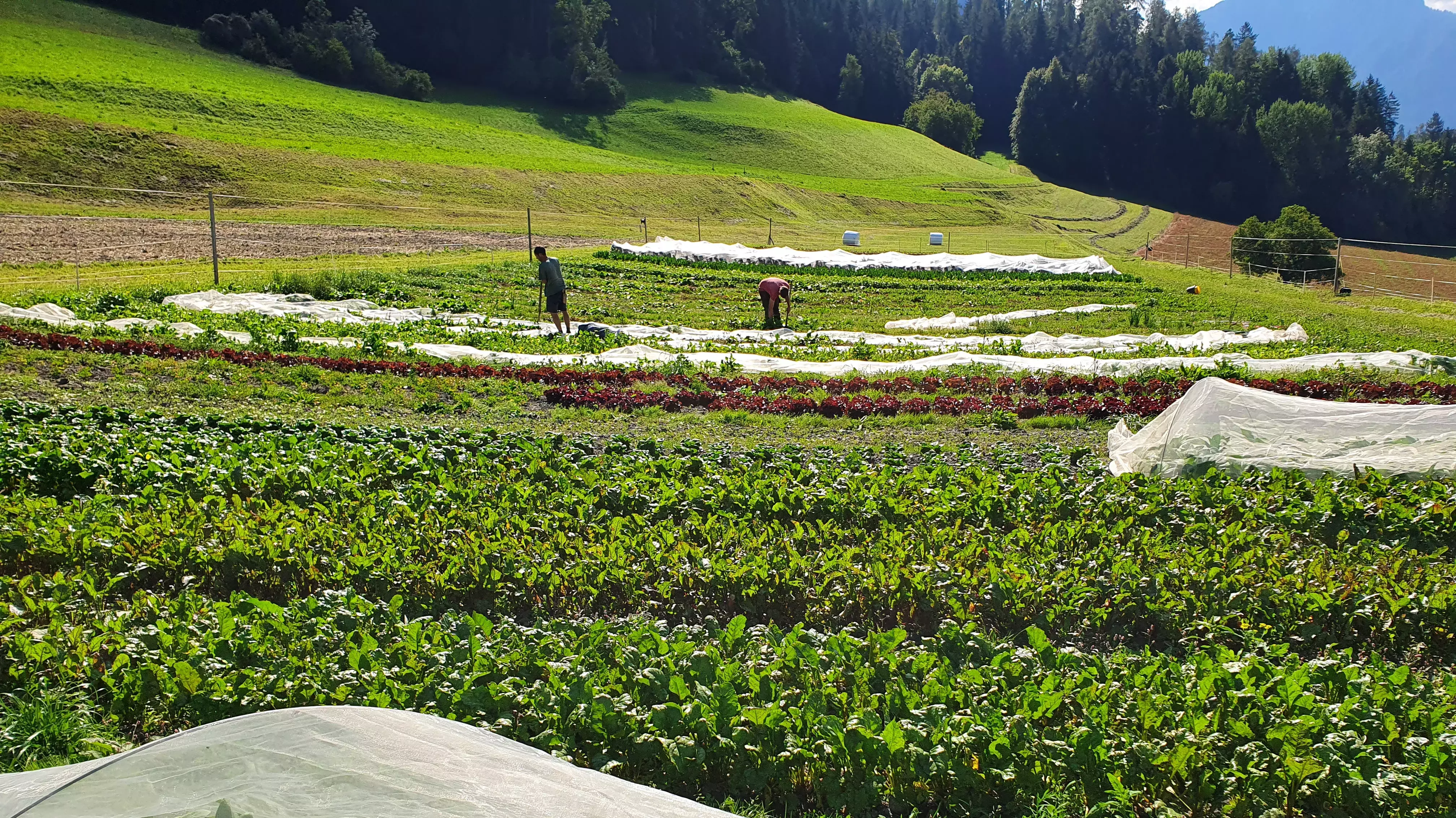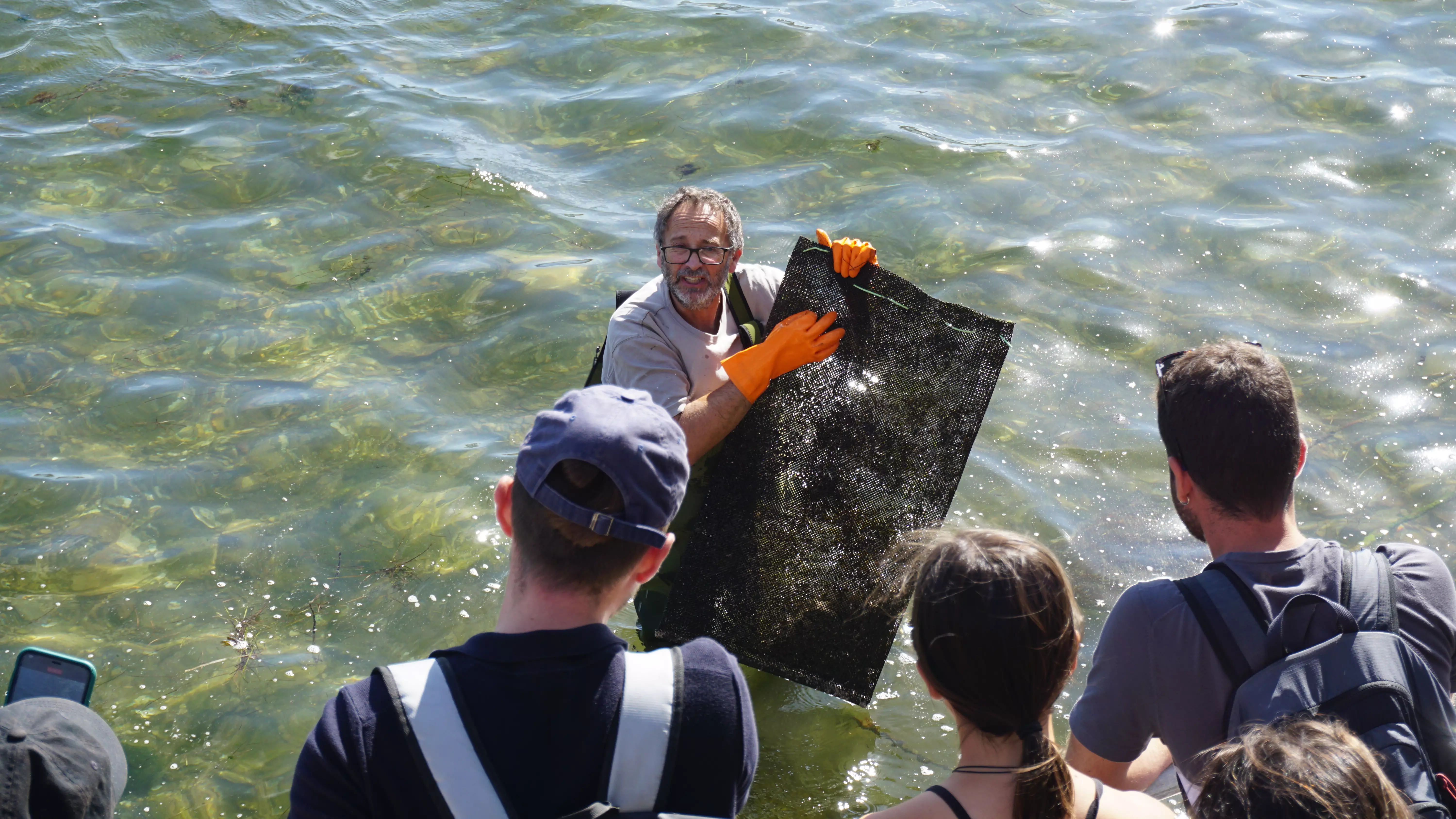Agrobiodiversity Summer School 2024
Agrobiodiversity and the transition to agroecological food systems
The Agrobiodiversity Summer School is a collaboration between the ZHAW research group Geography of Food, the Swiss Research Institute of Organic Agriculture (FiBL), the University of Ljubljana in Slovenia and research institutes in Spain and Hungary - it will take place at a different location every year.
Agrobiodiversity includes the diversity of crops and livestock species and varieties, the diversity of production and food supply systems, different agricultural practices and intensities and the biodiversity that indirectly supports agriculture through provisioning ecosystem services. Agrobiodiversity is therefore essential for locally adapted and resilient land use systems across the globe and ultimately contributes to the achievement of several Sustainable Development Goals (SDGs).
In this International Summer School, you will learn about various perspectives on agrobiodiversity and its contribution to the sustainability and resilience of food systems. In small groups of international students and experts, you will have the chance to deeply investigate opportunities and challenges of the existing local production systems and food supply chains and how they are connected to agrobiodiversity. Together with local stakeholders, you will develop strategies and solutions for addressing their challenges through different aspects of agrobiodiversity. In this program, you will also have the chance to improve your intercultural competencies to work in an international and interdisciplinary context.
Find some impressions of the Agrobiodiversity Summer School 2023 in Hungary in our news post.
Program
The Agrobiodiversity Summer School consists of a preparatory phase and a 10-days study week. In the preparatory phase (April - August 2024) you will conduct a mini case study related to the local agrobiodiversity of your home country or place of study. During the study week in Slovenia (18th - 28th of August 2024), you will present the results of your mini case study, visit various case studies in different regions and work on a group project with other participants. After successful completion of the course, you will be awarded 6 ECTS.
Listen to our podcast episode below to hear what participants of the Agrobiodiversity Summer School 2023 in Hungary experienced and learned.
Apply for the ABS
Applications for the ABS 2024 are now closed. Come back later this year for more information on the ABS 2025!
Mini Case Studies
As a preparation to the Agrobiodiversity Summer School participants conduct a mini case study. They are asked to analyze and describe a real case from their country, where agrobiodiversity is a relevant aspect. The finished product is a poster that participants present during the study week.
Below, you can find the mini case study posters from 2022 and 2023.
Partners
This is a cooperation project between the IUNR, the Research Institute of Organic Agriculture (FiBL) and the University of Ljubljana and is supported by Stiftung Mercator Schweiz.
